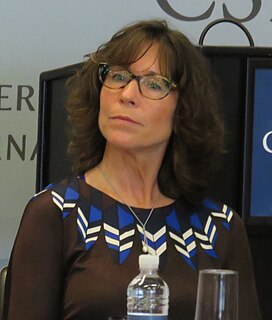
No first use (NFU) is a pledge or a policy by a nuclear power not to use nuclear weapons as a means of warfare unless first attacked by an adversary using nuclear weapons. This concept is also applied to chemical and biological warfare in case of the NFU policy of India.
A client state, in international relations, is a state that is economically, politically, and/or militarily subordinate to another more powerful state. A client state may variously be described as satellite state, associated state, dominion, condominium, self-governing colony, neo-colony, protectorate, vassal state, puppet state, and tributary state.

The Great Game was a political and diplomatic confrontation that existed for most of the 19th century and beginning of the 20th century between the British Empire and the Russian Empire over Afghanistan and neighbouring territories in Central and South Asia, and having direct consequences in Persia and British India.
Geopolitics is the study of the effects of Earth's geography on politics and international relations. While geopolitics usually refers to countries and relations between them, it may also focus on two other kinds of states: de facto independent states with limited international recognition and relations between sub-national geopolitical entities, such as the federated states that make up a federation, confederation or a quasi-federal system.

The Indo-Pacific, sometimes known as the Indo-West Pacific or Indo-Pacific Asia, is a biogeographic region of Earth's seas, comprising the tropical waters of the Indian Ocean, the western and central Pacific Ocean, and the seas connecting the two in the general area of Indonesia. It does not include the temperate and polar regions of the Indian and Pacific oceans, nor the Tropical Eastern Pacific, along the Pacific coast of the Americas, which is also a distinct marine realm.
The Foreign Policy Research Institute (FPRI) is an American think tank based in Philadelphia, Pennsylvania, that conducts research on geopolitics, international relations, and international security in the various regions of the world as well as on ethnic conflict, U.S. national security, terrorism, and on think tanks themselves. It publishes a quarterly journal, Orbis, as well as a series of monographs, books, and electronic newsletters.

Atlanticism, also known as Transatlanticism, is the belief in or support for a close relationship between peoples and governments in Northern America and those in Europe, regarding political, economic, and defence issues. It seeks to maintain the security and prosperity of the participating countries and protect liberal democracy and the values that unite them. The term derives from the Atlantic Ocean that separates North America from Europe.
Grand strategy or high strategy is a state's strategy of how means can be used to advance and achieve national interests. Issues of grand strategy typically include the choice of primary versus secondary theaters in war, distribution of resources among the various services, the general types of armaments manufacturing to favor, and which international alliances best suit national goals. With considerable overlap with foreign policy, grand strategy focuses primarily on the military implications of policy. A country's political leadership typically directs grand strategy with input from the most senior military officials. Development of a nation's grand strategy may extend across many years or even multiple generations. While the grand strategy scholarship is dominated by the conception that only great powers can have grand strategies, some scholars argue that middle powers and even small states can have grand strategies.
A buffer state is a country lying between two rival or potentially hostile great powers. Its existence can sometimes be thought to prevent conflict between them. A buffer state is sometimes a mutually agreed upon area lying between two greater powers, which is demilitarized in the sense of not hosting the military of either power. The invasion of a buffer state by one of the powers surrounding it will often result in war between the powers.
Geostrategy, a subfield of geopolitics, is a type of foreign policy guided principally by geographical factors as they inform, constrain, or affect political and military planning. As with all strategies, geostrategy is concerned with matching means to ends—in this case, a country's resources with its geopolitical objectives. Strategy is as intertwined with geography as geography is with nationhood, or as Colin S. Gray and Geoffrey Sloan state it, "[geography is] the mother of strategy."

Nicholas John Spykman was an American political scientist who was Professor of International Relations at Yale University from 1928 until his death in 1943. He was one of the founders of the classical realist school in American foreign policy, transmitting Eastern European political thought to the United States.
In the late 1990s, some journalists used the expression "The New Great Game" to describe what they proposed was a renewed geopolitical interest in Central Asia based on the mineral wealth of the region.

Soviet Union–United States relations were fully established in 1933 as the succeeding bilateral ties to those between the Russian Empire and the United States, which lasted from 1776 until 1917; they were also the predecessor to the current bilateral ties between the Russian Federation and the United States that began in 1992. The relationship between the Soviet Union and the United States was largely defined by mistrust and tense hostility. The invasion of the Soviet Union by Nazi Germany as well as the attack on the U.S. Pacific Fleet at Pearl Harbor by Imperial Japan marked the Soviet and American entries into World War II on the side of the Allies in June and December 1941, respectively. As the Soviet–American alliance against the Axis came to an end following the Allied victory in 1945, the first signs of post-war mistrust and hostility began to immediately appear between the two countries. These bilateral tensions escalated into the Cold War, a decades-long period of tense hostile relations with short phases of détente that ended after the collapse of the Soviet Union and emergence of the present-day Russian Federation in 1991.
The foreign policy of Vladimir Putin concerns the policies of Russia's president Vladimir Putin with respect to other nations. He held office from 2000 to 2008, and assumed power again in 2012.

Kori N. Schake is the Director of Foreign and Defense Policy at the American Enterprise Institute. She has held several high positions in the U.S. Defense and State Departments and on the National Security Council. She was a foreign-policy adviser to the McCain-Palin 2008 presidential campaign. Schake is a contributing writer at The Atlantic.

The Foundations of Geopolitics: The Geopolitical Future of Russia is a geopolitical book by Aleksandr Dugin. Its publication in 1997 was well received in Russia; it has had significant influence within the Russian military, police, and foreign policy elites, and has been used as a textbook in the Academy of the General Staff of the Russian military. Powerful Russian political figures subsequently took an interest in Dugin, a Russian political analyst who espouses an ultranationalist and neo-fascist ideology based on his idea of neo-Eurasianism, who has developed a close relationship with Russia's Academy of the General Staff.

William C. Martel was a scholar who specialized in studying the leadership and policymaking processes in organizations, strategic planning, cyberwarfare and militarisation of space, and technology innovation. He taught at the U.S. Air War College and U.S. Naval War College, and performed research for DARPA and the RAND Corporation. He later become Associate Professor of International Security Studies at the Fletcher School of Law and Diplomacy, a position he held until his death in 2015.
Hybrid warfare is a theory of military strategy, first proposed by Frank Hoffman, which employs political warfare and blends conventional warfare, irregular warfare, and cyberwarfare with other influencing methods, such as fake news, diplomacy, lawfare and foreign electoral intervention. By combining kinetic operations with subversive efforts, the aggressor intends to avoid attribution or retribution. The concept of hybrid warfare has been criticized by a number of academics and practitioners due to its alleged vagueness, its disputed constitutive elements, and its alleged historical distortions.

Aaron Wess Mitchell is an American foreign policy expert and former diplomat who was the Assistant Secretary of State for European and Eurasian Affairs from October 2017 until February 2019. Prior to assuming the role at State Department, he was president and CEO of the Center for European Policy Analysis. On July 19, 2017, President Donald Trump nominated Mitchell as Assistant Secretary of State for European and Eurasian Affairs.

Foreign policy of Herbert Hoover covers the international activities and policies of Herbert Hoover for his entire career, with emphasis to his roles from 1914 to 1933.











